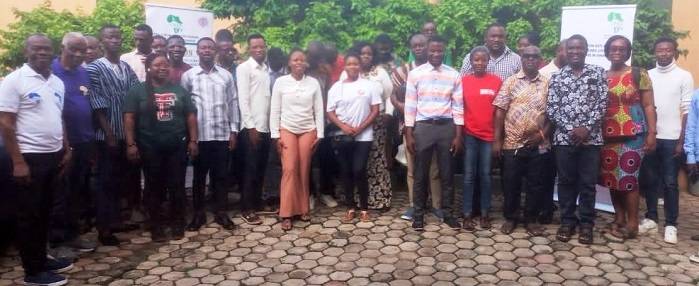
Forty journalists in the Northern Region were last Thursday trained in the rudiments of biotechnology and Genetically Modified Organisms (GMO) in Ghana to enhance their knowledge and reportage on the technology.
It was organised by the Council for Scientific and Industrial Research Institute (CSIR)-Savannah Agriculture Research Institute (SARI) in collaboration with Open Forum on Agricultural Biotechnology Ghana (OFAB).
The Senior Research Scientists at the CSIR – SARI, Dr Jerry Nboyine, in his presentation said the idea was to broaden the knowledge of the media on GM.
He said the workshop also was for them to understand the importance of science-biotechnology, particularly for food security in order to deepen their skills adequately and effectively to report on GM with its scientific terminologies.
Dr Nboyine said this would bring clarity on GM technology activities in Ghana and the status of work done on GM product (PBR Cowpea) within CSIR in Ghana.
He called on the media to help educate farmers to embrace the new technologies to improve yields in their various farming communities across the country.
Dr Nboyine added that GMO foods were here to complement the local food, and were not meant to cause health hazard to human life, adding that GMO foods were never different from the local foods.
The National Coordinator of OFAB, Dr Richard Ampadu-Ameyaw, said the intention of GMOs was to increase yield, decrease pesticide use, decrease farm labour or increase nutritional value and others as a way to improve farm income, welfare and local development.
Mr Ameyaw said OFAB Ghana was a member of OFAB Africa Group, aimed at creating awareness on biotechnology and genetically modified organisms in Africa.
He stated that the biotechnology was another breeding technique which employs biological organisms or parts through biological processes for the production of products and services for human consumption.
According to him, there was no commercialised biotech crop in the country, but noted that two crops, cowpea and cotton, were in the confined field trial, pointing out that “Biotech crops is the fastest adopted crops according to reports by scientists.”
He appealed to the journalists to educate the public on the GMOs and their benefits.
FROM YAHAYA NUHU NADAA, TAMALE






